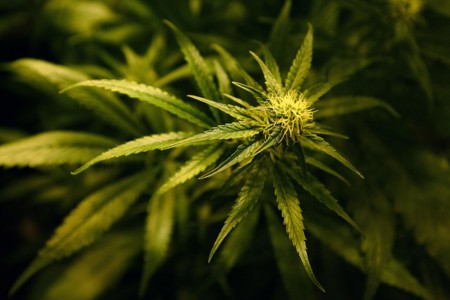“If results of a recent rat study hold true in human trials, marijuana could be the treatment of choice for patients with malignant glioma — an especially aggressive and often fatal form of brain cancer.
No, rats haven’t started smoking pot. But when researchers injected tumorous animals with cannabinoids — the drug’s active ingredient — about a third of them went into remission, and another third lived significantly longer than untreated rats.
The findings appear in the March issue of the journal Nature Medicine…
According to lead researcher Manuel Guzmán, PhD, his team’s previous studies showed that cannabinoids could stop growth and kill cancer cells but did not harm normal cells. The current work examined the action behind this effect and whether it would also work in living animals…
The researchers first caused tumors in the brains of 18 rats. They then injected the animals over the course of seven days with either a natural or artificial cannabinoid, or a placebo for comparison. Additional groups of healthy, tumor-free rats also received the various treatments…
All of the untreated animals with tumors died between days 12 and 18, but those treated with the cannabinoids lived much longer, and had significantly smaller tumors…
There were no negative side effects at all in the healthy animals receiving treatment.”
More:http://www.webmd.com/cancer/news/20000228/marijuanas-active-ingredient-targets-deadly-brain-cancer


1942-7611/asset/olalertbanner.jpg?v=1&s=4b27d6a6bed6b58a9935efe70e4f95efc39146bd)


